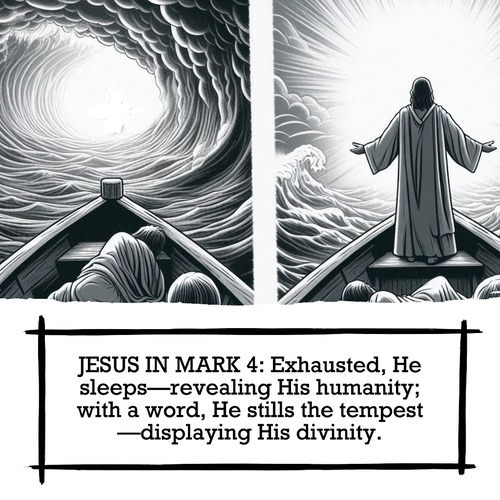The Beatitudes: The Nine Marks of Those Jesus Calls Blessed
When Jesus climbed that hillside in Galilee and began to speak, He turned the world’s understanding of blessing upside down. “Blessed are the poor in spirit,” He declared to the crowd gathered around Him. Poor? Blessed? In a world that equated divine favour with material prosperity and social status, these words must have sounded revolutionary—even scandalous.
Yet in those nine statements we call the Beatitudes, Jesus wasn’t just challenging conventional wisdom. He was painting a portrait of the human heart transformed by grace, revealing the character marks that distinguish citizens of His kingdom from citizens of this world. These aren’t requirements we must fulfil to earn God’s blessing, but rather descriptions of those who’ve already been blessed by His unmerited grace.
The Beatitudes present us with a spiritual progression—a journey from initial conversion to mature discipleship that every believer walks. They show us what gospel transformation actually looks like in real life.
THE ARCHITECTURE OF GRACE
Before we examine each beatitude individually, it’s crucial to understand their spiritual architecture. The nine marks aren’t random qualities thrown together, but follow a deliberate progression that mirrors the Christian’s journey toward Christlikeness.
The first three beatitudes reveal an inward emptying—the recognition of our spiritual poverty and desperate need for God. The middle three show an upward longing—the active pursuit of righteousness and God’s character. And the final three demonstrate outward expression—living as kingdom citizens in a world that often opposes everything we represent.
The progression reflects a fundamental Reformed truth: God’s grace doesn’t just save us, it transforms us. Through union with Christ and the ongoing work of the Holy Spirit, believers grow in these character marks not through human effort, but through divine enabling. We don’t manufacture these qualities; they flow from our identity as God’s beloved children.
THE JOURNEY BEGINS: INWARD EMPTYING
“Blessed are the poor in spirit, for theirs is the kingdom of heaven.” (Matthew 5:3) Every spiritual journey begins with bankruptcy. To be “poor in spirit” means recognising our complete spiritual destitution before God—the opposite of the self-righteousness that characterises our natural state. This isn’t about material poverty, but spiritual poverty. It’s the recognition that we have absolutely nothing to offer God except our desperate need for His mercy.
Why does Jesus call such people blessed? Because only those who recognise their spiritual bankruptcy can receive the riches of His grace. The kingdom of heaven belongs to them—not as a future promise, but as a present reality. Pride closes the door to God’s kingdom; spiritual poverty opens it wide.
“Blessed are those who mourn, for they will be comforted.” (Matthew 5:4) The mourning Jesus speaks of isn’t just any kind of grief, but specifically godly sorrow over sin. When the Holy Spirit opens our eyes to see ourselves as God sees us, the natural response is mourning—not merely regret over consequences, but genuine brokenness over how our sin grieves God’s heart and damages His creation.
This mourning is blessed because it evidences the Spirit’s convicting work in our hearts. The unregenerate don’t truly mourn over sin; they may regret getting caught or facing consequences, but they don’t grieve over sin itself. When God comforts those who mourn, He doesn’t remove their sensitivity to sin, but provides the deep consolation of knowing that their sins are forgiven and their relationship with Him restored. CHECK OUT OUR POST: Sacred Sorrow: Why Jesus Calls Mourning a Blessing
“Blessed are the meek, for they will inherit the earth.” (Matthew 5:5) Meekness isn’t weakness—it’s strength under control. The meek person has been emptied of pride and self-assertion, becoming gentle and teachable. Like a powerful horse yielded to its master’s guidance, the meek have learned to submit their strength to God’s direction.
Jesus calls them blessed because meekness reflects His own character. “Learn from me,” He said, “for I am gentle and humble in heart.” The promise that the meek will inherit the earth points to their ultimate vindication. While the proud may dominate now, God’s kingdom belongs to those who have learned gentleness.
THE HEART AWAKENED: UPWARD LONGING
“Blessed are those who hunger and thirst for righteousness, for they will be filled.” (Matthew 5:6) Having been emptied of self-righteousness, the believer now develops an intense appetite for true righteousness—both personal holiness and God’s justice in the world. This hunger is evidence of new birth; unregenerate hearts don’t truly crave righteousness any more than a dead person craves food.
This spiritual appetite is blessed because God promises to satisfy it. Through progressive sanctification, He gradually conforms us to Christ’s image. Through His providential working in history, He will ultimately establish perfect justice. Our longing for righteousness isn’t wishful thinking—it’s a divinely implanted desire that God delights to fulfil.
“Blessed are the merciful, for they will receive mercy.” (Matthew 5:7) Grace received naturally flows outward as grace given. Those who’ve experienced God’s mercy become merciful toward others—forgiving offenses, showing compassion to the suffering, and extending practical help to those in need. This isn’t about earning God’s mercy through our mercy (that would contradict the gospel), but demonstrating that we’ve truly received it.
The merciful are blessed because their mercy evidences their justified state. As Jesus taught in the parable of the unforgiving servant, those who’ve been forgiven much naturally forgive much. When Jesus promises the merciful will receive mercy, He’s describing the ongoing experience of those who live in the flow of God’s grace.
“Blessed are the pure in heart, for they will see God.” (Matthew 5:8) Purity of heart isn’t about moral perfection (for we’re still being sanctified), but about single-minded devotion to God. It’s the opposite of double-mindedness—that divided loyalty that tries to serve both God and lesser things. The pure in heart have learned to want what God wants with undivided affection.
This purity is blessed because it comes from the washing of regeneration and leads to increasingly clear spiritual vision. Even now, the pure in heart “see” God in His word, His works, and His ways in a manner the spiritually blind cannot. This vision will find its perfect fulfillment when we see Him face to face.
KINGDOM LIVING: OUTWARD EXPRESSION
“Blessed are the peacemakers, for they will be called children of God.” (Matthew 5:9) Peacemaking goes beyond peacekeeping. While peacekeepers may simply avoid conflict, peacemakers actively work to reconcile broken relationships and heal divisions. They’re ambassadors of the God who reconciled us to Himself through Christ, extending that ministry of reconciliation to others.
Peacemakers are blessed because they bear the family resemblance of their heavenly Father. When Jesus calls them “children of God,” He’s noting how their character reflects their divine parentage. Just as human children often resemble their parents, spiritual children display their Father’s character through their reconciling work.
“Blessed are those who are persecuted because of righteousness, for theirs is the kingdom of heaven.” (Matthew 5:10) Living righteously in a fallen world inevitably brings opposition. This persecution isn’t random suffering, but specific opposition because of righteous living. It confirms authentic discipleship—the world recognizes something different about genuine Christians and often responds with hostility.
Notice how this beatitude returns to the promise of the first: “theirs is the kingdom of heaven.” This bookend suggests the journey from spiritual poverty to willing persecution for righteousness represents the full spectrum of kingdom citizenship.
“Blessed are you when people insult you, persecute you and falsely say all kinds of evil against you because of me.” (Matthew 5:11) The final beatitude moves from general persecution for righteousness to specific persecution for Christ’s name. This is the ultimate test of discipleship—suffering not just for doing good, but for personal identification with Jesus Himself.
This persecution is blessed because it means we’re walking in the footsteps of the prophets and, ultimately, of Christ Himself. The “great reward in heaven” isn’t earned through suffering, but demonstrates that our citizenship truly belongs to heaven rather than earth.
THE BLESSED LIFE TODAY
The Beatitudes aren’t a spiritual checklist we complete through human effort. They flow from gospel transformation, evidencing what God’s grace produces in redeemed hearts. We see them best lived out in covenant community with other believers, where these 9 marks complement and strengthen one another.
We live in the tension between present blessing and future fulfillment. These qualities mark us now as God’s children, but they’ll find their perfect expression only when Christ returns and makes all things new.
Most importantly, we see these beatitudes perfectly embodied in Jesus Himself. He was poor in spirit, mourning over sin, gentle with the broken, hungry for righteousness, merciful to sinners, pure in heart, making peace between God and humanity, and ultimately persecuted for the sake of the kingdom. As we’re united to Him by faith, His character increasingly becomes ours.
NINE MARKS OF THOSE JESUS CALLS BLESSED: TRULY BLESSED
True blessedness isn’t found in worldly prosperity, social status, or even personal happiness. It’s found in gospel transformation—in becoming the kind of people God’s grace makes us. The progression from spiritual poverty to willingly enduring persecution for Christ’s name maps the entire journey of Christian discipleship.
Where do we find ourselves in this progression? The beauty of God’s grace is that it meets us wherever we are and continues the work of transformation until that day when we see Him face to face. Until then, these nine marks remind us what it means to live as citizens of heaven while still residing on earth—truly blessed by the One who calls us His own. His very own.
NINE MARKS OF THOSE JESUS CALLS BLESSED: RELATED FAQs
Why do some scholars count eight Beatitudes instead of nine? Many scholars combine verses 10 and 11 since both deal with persecution, but Reformed theologian Sinclair Ferguson argues they represent distinct stages of persecution. Verse 10 addresses general persecution for righteousness, while verse 11 specifically mentions persecution “for my sake,” representing a deeper level of identification with Christ. Similarly, John MacArthur distinguished between these as separate beatitudes, noting the progression from righteous living to explicit Christian witness.
- Do the Beatitudes describe believers or non-believers who’re becoming believers? Kevin DeYoung argues these describe the ongoing character of believers, not steps to salvation. DA Carson emphasises they’re neither entrance requirements nor graduation standards, but portraits of kingdom citizens at various stages of maturity. The Reformed position maintains these are evidences of grace already received, not conditions for receiving it.
- How do the Beatitudes relate to the Old Testament concept of blessing? Craig Blomberg notes Jesus radically redefines the Hebrew concept of blessing (asher), which was often connected to material prosperity. Reformed theologian Geerhardus Vos argued Jesus was fulfilling and transforming the Mosaic covenant’s understanding of blessing, showing true covenant blessing comes through spiritual transformation rather than external circumstances.
Do the Beatitudes apply primarily to Israel or the Church? While dispensationalists like John Walvoord have argued these apply primarily to future Israel, Reformed scholars uniformly apply them to the Church. RC Sproul emphasised the Sermon on the Mount, including the Beatitudes, describes Christian discipleship for all ages. John Stott argued trying to separate these from current Christian living misses their practical and immediate relevance for believers today.
- How do contemporary Reformed theologians interpret “inherit the earth” in verse 5? Timothy Keller suggested this refers both to the ultimate restoration of creation and believers’ present role as faithful stewards of God’s world. NT Wright emphasises the new creation aspect—the meek will inherit the renewed earth promised in Revelation. Reformed theologians generally avoid purely spiritualised interpretations, maintaining that God’s promises include both present spiritual blessings and future physical restoration.
- What’s the relationship between the Beatitudes and justification by faith alone? Reformed theologian Michael Horton emphasises that the Beatitudes describe the fruit of justification, not its ground. They’re evidences of regeneration that flow from union with Christ, not works that contribute to our righteous standing before God. John Piper argues they show what justified people look like when the gospel takes root in their hearts—transformed character that demonstrates rather than earns salvation.
How should churches practically cultivate these characteristics in their members? Tim Keller suggested these qualities develop best in Christian community through authentic relationships and mutual accountability. Mark Dever emphasises expository preaching that shows how the gospel produces these character traits. Contemporary Reformed practice focuses on discipleship that connects doctrinal truth to heart transformation, viewing the Beatitudes not as moral imperatives but as gospel imperatives that flow from understanding our identity in Christ.
NINE MARKS OF THOSE JESUS CALLS BLESSED: OUR RELATED POSTS
- Fruit of the Spirit: The Nine Marks of True Christian Maturity
- Sacred Sorrow: Why Jesus Calls Mourning a Blessing
- True Worship That God Delights In: Insights from Scripture
Editor's Pick

Self-Authentication: Why Scripture Doesn’t Need External Validation
"How can the Bible prove itself? Isn't that circular reasoning?" This objection echoes through university classrooms, coffee shop discussions, and [...]

Do Christians Need Holy Shrines? Why the Reformed Answer Is No
Walk into a medieval cathedral and you'll encounter ornate shrines, gilded reliquaries, and designated "holy places" where pilgrims gather to [...]

I Want To Believe, But Can’t: What Do I Do?
"I want to believe in God. I really do. But I just can't seem to make it happen. I've tried [...]

BC 1446 or 1250: When Did the Exodus Really Happen?
WHY REFORMED SCHOLARS SUPPORT THE EARLY DATE Many a critic makes the claim: “Archaeology has disproven the biblical account [...]

Does God Know the Future? All of It, Perfectly?
Think about this: our prayers tell on us. Every time we ask God for something, we’re confessing—often without realising it—what [...]

Can Christian Couples Choose Permanent Birth Control?
Consider Sarah, whose fourth pregnancy nearly killed her due to severe pre-eclampsia, leaving her hospitalised for months. Or David and [...]

Bone of My Bones: Why Eve Was Created From Adam’s Body
"This at last is bone of my bones and flesh of my flesh!" Adam's joyful exclamation upon first seeing Eve [...]

Is Calvinism Fatalism in Christian Disguise? Think Again
We hear the taunt every now and then: "Calvinism is just fatalism dressed up in Christian jargon." Critics argue Reformed [...]

Can Churches Conduct Same-Sex Weddings?
In an era of rapid cultural change, churches across America face mounting pressure to redefine their understanding of marriage. As [...]

Gender Reassignment: Can Christian Doctors Perform These Surgeries?
In the quiet of a clinic, a Christian physician faces a challenging ethical question. A patient sits across the desk, [...]
SUPPORT US:
Feel the Holy Spirit's gentle nudge to partner with us?
Donate Online:
Account Name: TRUTHS TO DIE FOR FOUNDATION
Account Number: 10243565459
Bank IFSC: IDFB0043391
Bank Name: IDFC FIRST BANK






